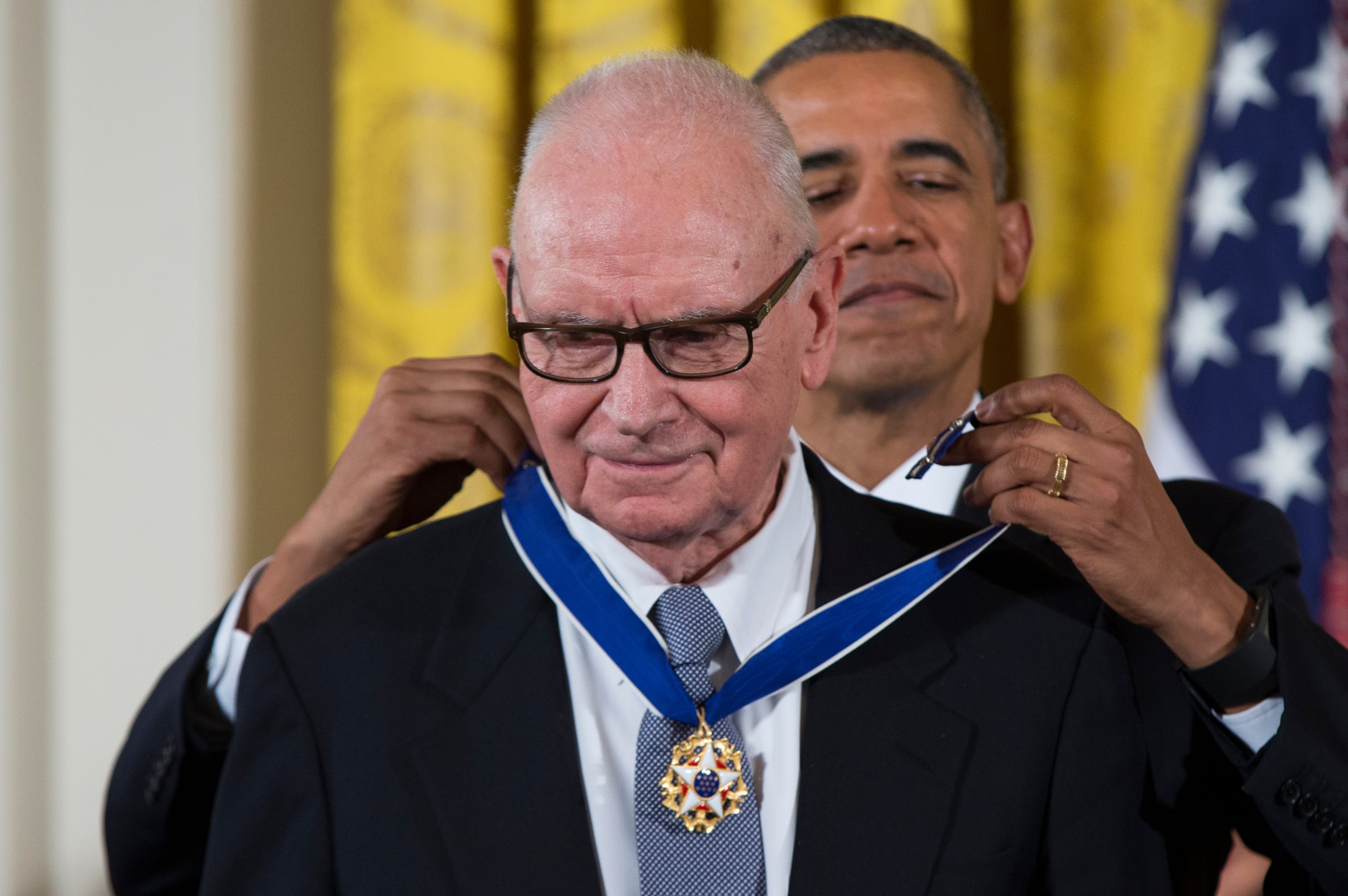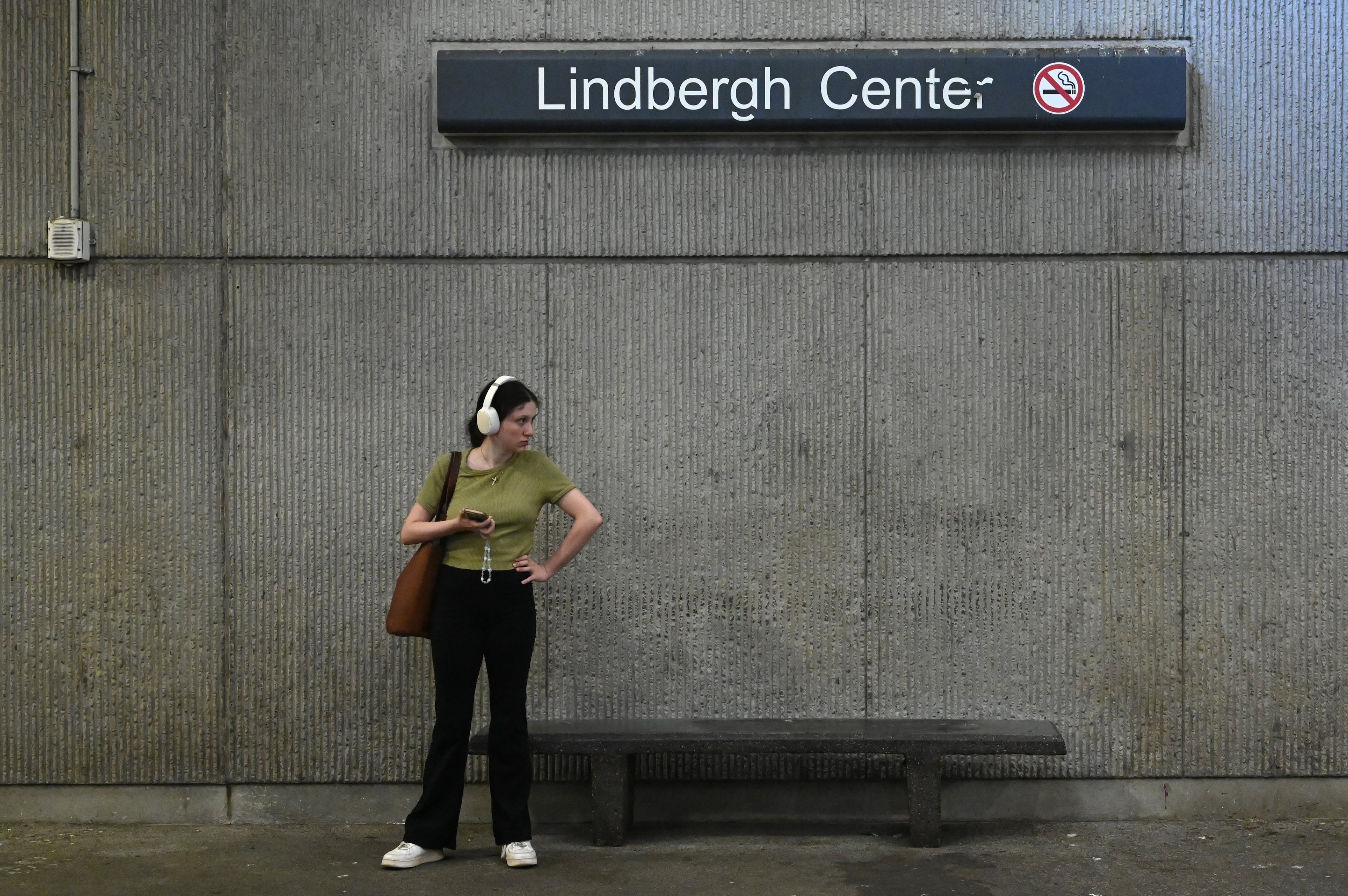As Jimmy Carter turns 100, his tiny hometown salutes his century

PLAINS — Jimmy Carter turned 100 on Tuesday, and in the southwestern Georgia town where he was raised, as scores of visitors flocked here to celebrate his life and his good deeds, the spotlight — as he surely would prefer it — shone on others.
At the old Plains High School, his alma mater, a structure only three years older than him, 100 new U.S. citizens were sworn in at a naturalization ceremony.
Among them was Nigerian native Dr. Ndausung Udongwo, a cardiologist at Grady Memorial Hospital in Atlanta. As he waited in line outside the old schoolhouse, which now is part of the Jimmy Carter National Historical Park, Udongwo, 32, said it was a privilege to be sworn in on the former president’s big day.
“This is history,” said Udongwo, who began the citizenship process more than half a decade ago. “It’s like putting icing on the cake.”
He also wondered, as did many others gathered there, whether Carter would make a surprise appearance.
Essays on Jimmy Carter
These were written for the Opinion page to coincide with former President Carter’s 100th birthday on Oct. 1.
Jimmy Carter’s lessons for America on his 100th birthday - Tara D. Sonenshine
How Joe Biden’s grace brought Jimmy Carter in from the cold - Elaine Povich
Why I, a conservative Republican, admire Jimmy Carter - Douglas Young
Wherever Jimmy Carter goes, there goes a good man - Corey Ryan Forrester
Remembering Jimmy Carter: The life story of the man from Plains
Carter has been in hospice care for the past 19 months. The last time he was seen in public, as best anyone knows, was at a Fourth of July fireworks show in neighboring Americus.
“It would be interesting if we got to see and celebrate him,” Udongwo said. “It’s good that God gave him strength to keep him alive. It would be good to see him get up to 120.”
As of midday, Carter, the longest-living former commander-in-chief, hadn’t shown up. His grandson, Josh Carter, speaking at a gathering in a downtown park Tuesday afternoon, said he and his family had lunch with the former president. “And, you know, South Georgia, so we had fried chicken, and we had pimento cheese sandwiches, and we had family and lively discussions, and we got to celebrate with my grandfather. And we got to tell him that we loved him, and he got to see his family, which is exactly what he wanted for his 100th birthday.”
The superintendent of the park, Jill Stuckey, said it was not likely Jimmy Carter would attend any of the public events held in his honor Tuesday.
“He would be happy that this is going on, but he would be happy for the 100 new citizens,” Stuckey said of the naturalization ceremony. “He would probably say something like, ‘I don’t need a big fuss about me. Go help somebody.’”
Many praise Carter for spending a lifetime helping others. He and his wife, Rosalynn, founded the nonprofit Carter Center shortly after he left the presidency. It has focused on promoting democracy and human rights around the globe, as well as eradicating diseases.
One of the new citizens was Fidel Roman, a native of Mexico who works in and around Coweta County as a subcontractor installing countertops.
Roman, 47, said, “Imagine a president turning 100 years old today. … He’s a great person and he’s alive, and we wish the best for his health.”
At the swearing-in ceremony, Plains Mayor Joseph Recker Jr. greeted a crowd of several hundred. Then he addressed the new citizens.
“Welcome,” Recker said, “to the United States of America.”
Denise M. Frazier, district director of the U.S. Citizenship and Immigration Services, swore in the newcomers. Then she noted the occasion: Carter’s birthday.
“One hundred years,” Frazier said. “One hundred years of public service. For you, our newest American citizens, President Carter is our model of what it is to be a citizen. What it is to give back to your country. What it is to advocate for freedom. What it is to advocate for human rights, decency and democracy. … He truly is someone who is about the people.”
The festivities were punctuated at midday with a flyover from a quartet of Navy F-18s, which roared over Carter’s house. Word was, Carter was outside to watch.
Other events on tap included an evening concert at the high school, a musical salute to Carter that also was to feature a short documentary about his hometown and his connection to it.
Atlanta-based filmmaker Griffin Hansen shot the 20-minute movie, “Something’s in Plains,” in the days after it was announced that Carter was entering hospice care. “We were trying to explore how the town was reeling with it,” Hansen said. “What we got — instead of a portrait of angst — was a portrait of optimism and thankfulness that the people in the town had.”
The prevailing narrative, Hansen said, was how appreciative locals were, how grateful, for what Carter has brought to this place and all that he continues to give.
“It’s a tiny little place,” Hansen said. “And I think the people of the town will be the first to tell you that if he could come from here, then the next great leader can come from anywhere.”



